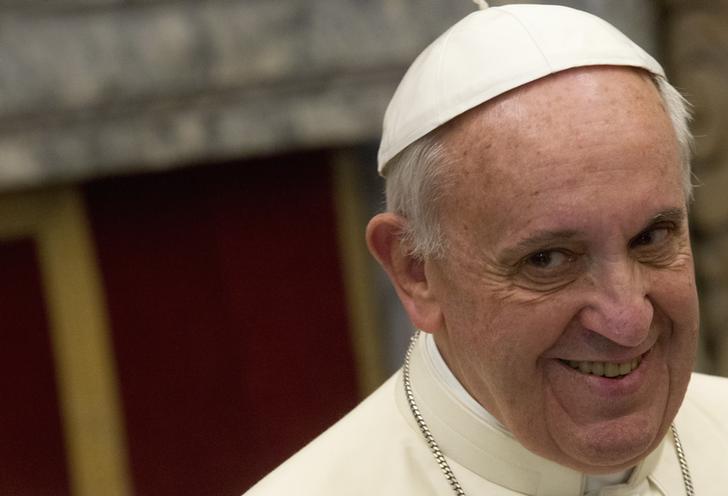Pope Francis isn’t satisfied with the translation of the Lord’s Prayer, at least in Italian. Speaking of the translation, Francis said, “That is not a good translation, because it speaks of a God who induces temptation.”
He made the remarks during a television interview yesterday.
Francis is referring to Matthew 6:13, which is the “sixth petition” of the Lord’s Prayer. The prayer is so-named because Jesus prayed it to demonstrate to the disciples how they ought to pray. In English, the prayer says, “And lead us not into temptation, but deliver us from evil.”
In Greek, the Text says:
“καὶ μὴ εἰσενέγκῃς ἡμᾶς εἰς πειρασμὸν, ἀλλὰ ῥῦσαι ἡμᾶς ἀπὸ τοῦπονηροῦ ὅτι σοῦ ἐστιν ἡ βασιλείακαὶ ἡ δύναμις, καὶ ἡ δόξα, εἰς τοῦςαἰῶνας ἀμήν.”
If you don’t understand Greek, you can use this handy resource to understand each word in the sentence here (bookmark the resource, because it’s handy). The phrase in question is εἰσενέγκῃς ἡμᾶς εἰς πειρασμὸν and means – wait for it – lead us not into temptation.
Yeah. That’s what it means. That’s what it means in English, French, Spanish, Swahili, Mandarin or pretty much any language. You can check out this parallel Bible resource from Bible hub and see how all the translations translate it. But, if you do so, fair warning. It’s anti-climactic, because they all (except for The Message or New Living Translation nonsense) all say the same thing.
The Young’s Literal Translation, which is the benchmark for literality in English, says, “And mayest Thou not lead us to temptation, but deliver us from the evil, because Thine is the reign, and the power, and the glory — to the ages. Amen.”
The Pope pointed to the French Catholic translation, which he says doesn’t impugn God with temptation.
Currently, the Italian version endorsed by the Romish church is:
Padre Nostro, che sei nei cieli,
Sia santificato il tuo nome.
Venga il tuo regno,
Sia fatta la tua volontá,
Come in cielo, così in terra.
Dacci oggi il nostro pane quotidiano,
E rimetti a noi i nostri debiti
Come noi li rimettiamo ai nostri debitori.
E non ci indurre in tentazione,
Ma liberaci dal male. Amen.
E non ci indurre in tentazione means, “And lead us not into temptation.” The Pope feels it’s worded wrong.
Jesus worded it.
Sure, Jesus didn’t put his Aramaic words into Italian, French, or English (his Spirit put them into Greek, however, in written form). But Jesus did phrase the prayer the way he wanted to phrase the prayer. Because it’s his prayer. That’s why it’s called the Lord’s Prayer.
It’s not the Pope’s prayer. He doesn’t have the right to change it. Clearly, this is not an issue of translation. There is no alternative translation. This is an issue of the Pope simply not liking what Jesus said.












